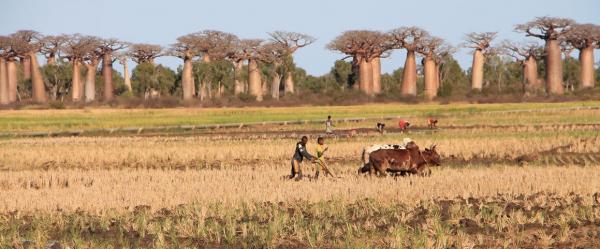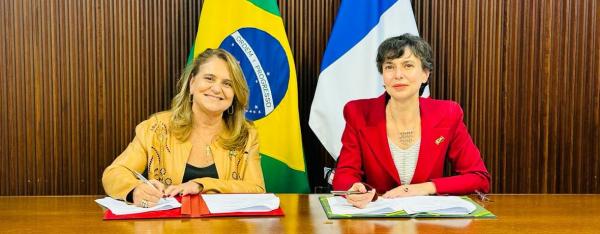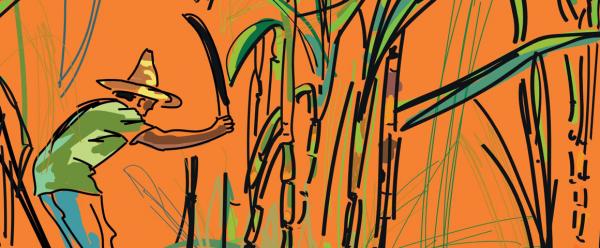Of the 15 proposals submitted by CIRAD teams in 2021 in response to a call for projects from the Horizon Europe programme ("Food, Bioeconomy, Natural Resources, Agriculture and Environment" cluster), 12 have been selected, including three new projects coordinated by CIRAD.
"I am delighted with the result of this first Horizon Europe call for projects, and I would like to congratulate our research and support teams", CIRAD CEO Elisabeth Claverie de Saint Martin says.
These results recognize the scientific excellence of CIRAD's teams, particularly its female scientists who have received European Research Council and Marie Curie grants.
Elisabeth Claverie de Saint Martin
CIRAD CEO
A brief look at these projects and their scientific leaders:
BCOMING: conserving biodiversity to limit infectious disease emergence
With BCOMING, we are looking to understand the mechanisms that favour infectious disease emergence and the links between biodiversity and human health. The aim is to develop biodiversity conservation and disease monitoring strategies that will reduce the risks of that emergence.
Julien Cappelle
Coordinator, BCOMING project (UMR ASTRE)
With a budget of 6 million euros, the project will begin in August 2022 and run for four years.
The BCOMING project (Biodiversity COnservation to Mitigate the risks of emergING infectious diseases) centres on seven pathogens in three study zones: Cambodia (SARS-CoV-2), Guinea (Ebola, Marburg and Lassa), and Guadeloupe (West Nile). The trematode worms and coronaviruses found in those three zones will also be studied.
It associates fourteen partners in four EU countries (Belgium, France, Germany and Hungary) and four associated countries (Cambodia, Guinea, Thailand and the UK).
A project coordinated by CIRAD and associating 14 partners is due to be launched in August 2022. It is called BCOMING, and is intended to pinpoint the mechanisms behind disease transmission between animals and humans, for instance of Ebola, HIV or coronaviruses. The aim is to limit the emergence of infectious diseases by means of biodiversity conservation strategies. The project will make use of innovative participatory approaches. BCOMING is funded by Horizon Europe.
BOLERO: improving coffee and cocoa rootstocks, for efficient, low-input farming systems
In the light of climate change, BOLERO's main objective is to develop new methods for selecting rootstocks in tropical tree crop plantings, to boost the resilience of coffee- and cocoa-based smallholder polyculture and agroforestry systems.
Benoît Bertrand
Coordinator, BOLERO project (UMR DIADE)
With a budget of 6 million euros, the project will begin in October 2022 and fun for four years.
The BOLERO project (Breeding for coffee and cocoa root resilience in low input farming systems based on improved rootstocks) will be conducted in three countries - Vietnam, Nicaragua and Uganda - representing three continents (Asia, South America and Africa) and a range of production systems.
It will look into the role of root architecture in coffee and cocoa productivity, with a view to selecting the best rootstocks. In particular, the aim will be to pinpoint the root characteristics that improve productivity, to optimize nitrogen nutrient use, and to develop digital tools for selecting the best rootstocks.
BOLERO associates eighteen partners, including five from the private sector, in eight EU countries (Austria, Czech Republic, Denmark, France, Germany, Ireland, Italy and Spain) and the UK, along with Nicaragua, Vietnam and Uganda.
GUARDEN: safeguarding biodiversity and critical ecosystem services
With GUARDEN, we hope to boost our capacity to preserve biodiversity and its contributions to human livelihoods, by developing innovative, widely accessible digital methods, as already shown by the Pl@ntNet platform.
Pierre Bonnet
Coordinator, GUARDEN project (UMR AMAP)
With a budget of 4.5 million euros, the project will begin in November 2022 and run for three years.
Case studies are planned in southern Europe (Cyprus, France, Greece and Spain), on remarkable plants from Mediterranean ecosystems. More broadly, they will look at plants of community interest, recorded in the annexes to the European Commission Habitats Directive. A case study in Madagascar will review the island's exceptional but seriously threatened biodiversity, giving priority to trees and shrubs, which structure ecosystems.
The GUARDEN project (SafeGUARDing biodivErsity aNd critical ecosystem services across sectors and scales) consortium associates sixteen partners in six EU countries (Belgium, Cyprus, France, Greece, the Netherlands and Spain) and two associated countries (Madagascar and the UK). It is multi-disciplinary, and involves ten leading research organizations and universities, four pioneering SMEs and two territorial organizations.
Two European Research Council and Marie Curie grants
A Marie Curie grant to develop banana disease monitoring tools
The main aim of the INDICANTS project is to develop and field-test innovative molecular tools for rapid on-site diagnosis of four banana diseases.
Isabelle Robène
Coordinator, INDICANTS project (UMR PVBMT)
The INDICANTS project (INnovative DIagnostiCs for bANana paThogens Surveillance), which has a € 220 000 Marie Sklodowska-Curie grant, made under the previous H2020 programme, began in January 2022 and will run for two years. The project coordinator is currently being hosted by the Plant Pathology Department at Stellenbosch University, South Africa.
The diseases for which diagnostic tools are being developed are fusarium wilt, bacterial wilt, Moko disease and blood disease (BDB).
An ERC starter grant to study how farmers' access to crop diversity impacts on their resilience
The European Research Council (ERC) recently granted CIRAD's Vanesse Labeyrie 1.5 million euros for a study of 3000 farms in semi-arid zones (in Morocco, Senegal and Madagascar), to investigate seed circulation and its consequences for the resilience of those farms. The aim is to understand how farmers access the crop diversity they need to cope with disruption, particularly climate change. The young researcher is one of 53 French scientists selected among a total of almost 400 in Europe. Fewer than 10% of applicants were successful.
CIRAD is also involved in eight other Horizon Europe projects:
- MAMBO: Modern Approaches to the Monitoring of BiOdiversity (UMR AMAP)
- REACT: Rapid elimination of invasive insect agricultural pest outbreaks by tackling them with Sterile Insect Technique programs (UMR PVBMT)
- ORCaSa: Operationalising the International Research Cooperation on Soil Carbon (UPR AIDA)
- DIGITAF: DIGItal Tools to help AgroForestry meet climate, biodiversity and farming sustainability goals: linking field and cloud (UMR AMAP, UMR ABSYS)
- ECO2ADAPT: Ecosystem-based Adaptation and Changemaking to Shape, Protect and Maintain the Resilience of Tomorrow’s Forests (UMR AMAP)
- SPIDVAC: Improved control of priority animal diseases: Novel vaccines and companion diagnostic tests for African horse sickness, peste des petits ruminants and foot-and-mouth disease (UMR ASTRE)
- ISIDORe: Integrated Services for Infectious Disease Outbreak Research (UMR ASTRE) within the European Health Emergency Preparedness and Response Authority (HERA) programme
- REFRESCAR: Improved coordination of national and European bioeconomy research and innovation programmes in the ERA through strengthened SCAR Working Groups
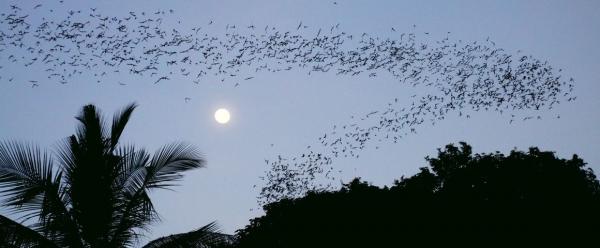
























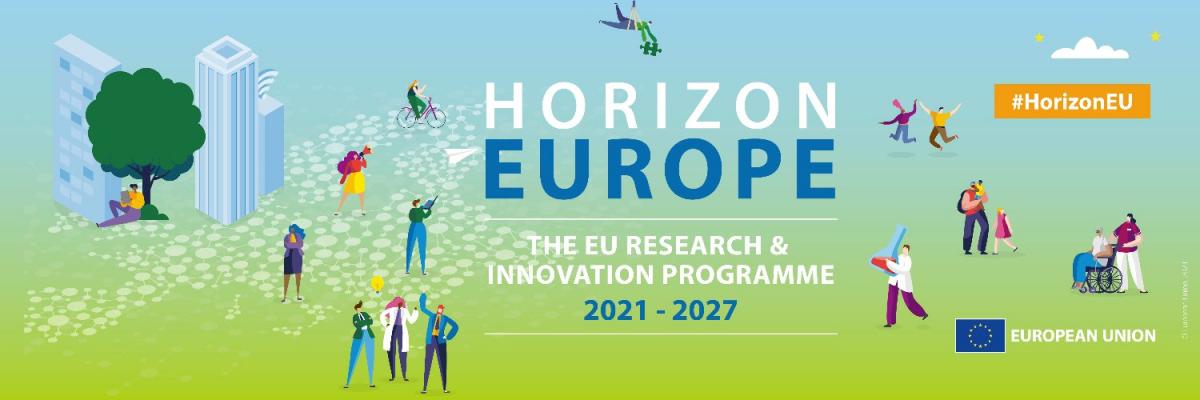
.jpg)
